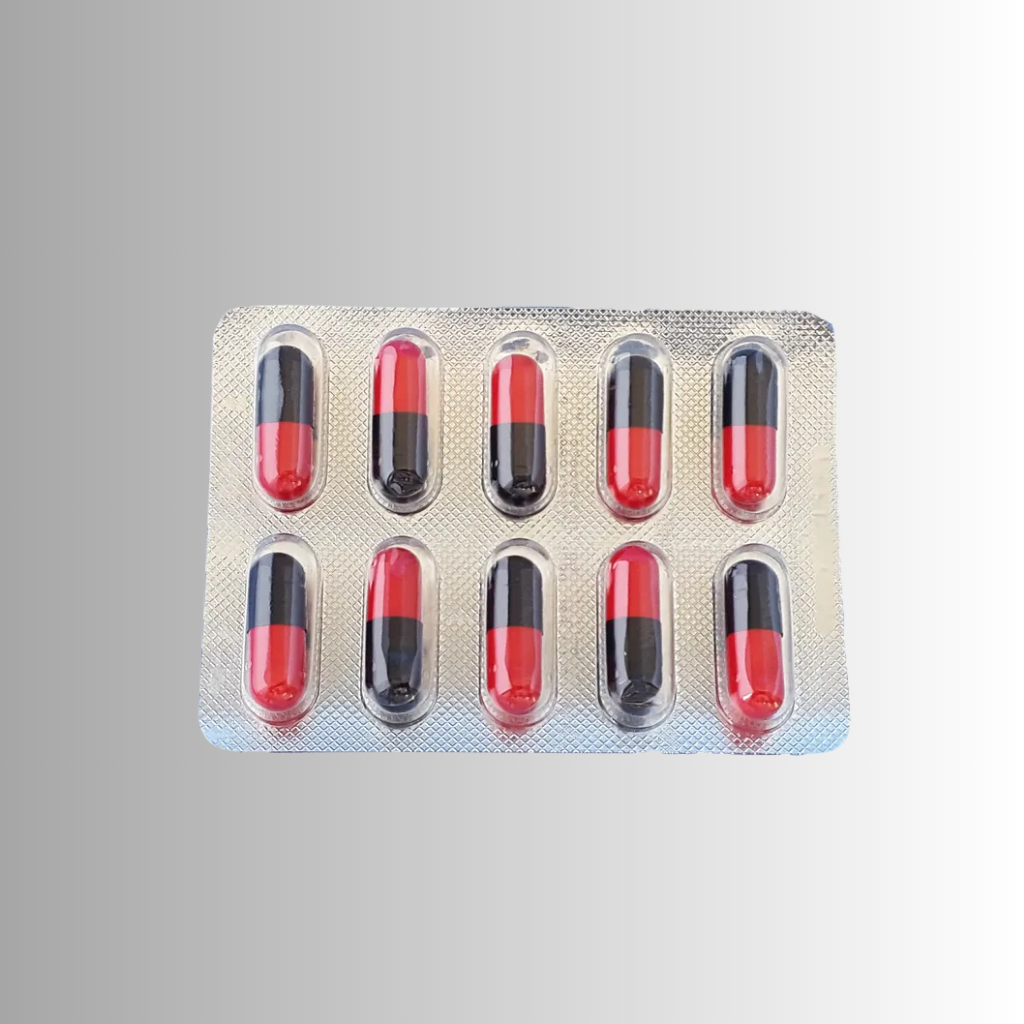Clinbact 300mg
Clinbact 300mg refers to a medication that contains Clindamycin 300mg as its active ingredient. Clindamycin is an antibiotic belonging to the lincosamide class. It works by inhibiting bacterial protein synthesis, which prevents bacteria from growing and multiplying.
Product Overview
Clinbact 300mg is primarily used to treat a wide range of serious bacterial infections caused by susceptible organisms. Its broad spectrum of activity makes it effective against various types of bacteria, particularly anaerobic bacteria (bacteria that thrive in the absence of oxygen) and some aerobic gram-positive cocci
₨550.00
Ask about productDescription
Clinbact 300mg refers to a medication that contains Clindamycin 300mg as its active ingredient. Clindamycin is an antibiotic belonging to the lincosamide class. It works by inhibiting bacterial protein synthesis, which prevents bacteria from growing and multiplying.
Product Overview
Clinbact 300mg is primarily used to treat a wide range of serious bacterial infections caused by susceptible organisms. Its broad spectrum of activity makes it effective against various types of bacteria, particularly anaerobic bacteria (bacteria that thrive in the absence of oxygen) and some aerobic gram-positive cocci.
Common Indications for Clinbact 300mg (Clindamycin):
- Dental Infections: Such as dental abscesses and other oral infections.
- Respiratory Tract Infections: Including pneumonia, lung abscesses, and empyema.
- Skin and Soft Tissue Infections: Like cellulitis, abscesses, and wound infections.
- Bone and Joint Infections: Such as osteomyelitis.
- Gynecological Infections: Including pelvic inflammatory disease (PID), endometritis, and vaginal cuff infections.
- Intra-abdominal Infections: Such as peritonitis and intra-abdominal abscesses.
- Septicemia (Blood Poisoning): Severe infections in the bloodstream.
- Acne: While often used topically for acne, oral clindamycin may be prescribed for more severe, systemic acne cases unresponsive to other treatments.
- Toxic Shock Syndrome: Often used in conjunction with other antibiotics.
- Bacterial Vaginosis: Oral clindamycin can be used to treat this vaginal infection.
It is important to note that clindamycin is often reserved for situations where other antibiotics (like penicillins) are not suitable, often due to allergies or resistance patterns.
Usage
Directions for Use:
Clinbact 300mg (Clindamycin) is a prescription-only medication. You must take it strictly as directed by your doctor.
- Dosage: The dosage and duration of treatment will vary depending on the type and severity of the infection, as well as the patient’s age and overall health. For adults with serious anaerobic infections, typical oral doses can range from 150-300 mg every 6 hours, potentially up to 450 mg every 6 hours for severe infections. The maximum oral dose is usually 1.8 g per day. For specific conditions like bacterial vaginosis, the dose might be 300 mg orally every 12 hours for 7 days.
- Administration: Clinbact 300mg is typically available as capsules.
- Swallow Whole: Swallow the capsule whole with a full glass of water.
- Position: It’s often advised to take it in an upright position (sitting or standing) to prevent esophageal irritation.
- With or Without Food: It can generally be taken with or without food, but taking it with food might help reduce stomach upset.
- Complete the Full Course: It is crucial to complete the entire prescribed course of antibiotics, even if your symptoms improve before you finish the medication. Stopping early can lead to the infection returning and potentially developing antibiotic resistance.
Important Precautions:
- Allergies: Inform your doctor if you have any known allergies to clindamycin, lincomycin, or any other medications.
- Gastrointestinal History: Use with caution if you have a history of gastrointestinal diseases, especially colitis, regional enteritis, or ulcerative colitis, as clindamycin can cause severe diarrhea and colitis.
- Liver and Kidney Impairment: Dosage adjustments may be necessary for patients with severe liver or kidney disease. Your doctor may monitor your liver and kidney function.
- Pregnancy and Breastfeeding: Consult your doctor if you are pregnant, planning to become pregnant, or breastfeeding. Clindamycin crosses the placenta and is excreted in breast milk. While some studies suggest it may be compatible with nursing, your doctor will weigh the risks and benefits.
- Drug Interactions: Inform your doctor about all other medications (prescription, OTC, herbal supplements) you are taking, as clindamycin can interact with certain drugs (e.g., neuromuscular blocking agents, macrolide antibiotics, warfarin).
Side Effects
Clindamycin can cause side effects, some of which can be serious.
Common Side Effects:
- Diarrhea: This is a very common side effect. Mild diarrhea often resolves after discontinuing the antibiotic.
- Nausea, vomiting, abdominal pain: Gastrointestinal upset.
- Esophagitis/Esophageal Ulcers: Can occur if the capsule gets stuck in the esophagus, hence the advice to take with plenty of water and in an upright position.
- Skin rash, itching (pruritus)
- Vaginal candidiasis (yeast infection) or vaginitis: Particularly in women, due to disruption of normal flora.
Serious Side Effects (Seek immediate medical attention if you experience any of these):
- Clostridioides difficile-associated diarrhea (CDAD) / Pseudomembranous Colitis: This is a severe and potentially life-threatening form of diarrhea that can occur during or even several weeks after treatment with clindamycin. Symptoms include severe, persistent, watery diarrhea, abdominal cramps, fever, and possibly blood or mucus in the stool. This is a black box warning for clindamycin.
- Severe Allergic Reactions: Hives, rash, difficulty breathing, swelling of the face, lips, tongue, or throat (anaphylaxis).
- Severe Skin Reactions: Such as Stevens-Johnson Syndrome (SJS) or Toxic Epidermal Necrolysis (TEN), characterized by widespread blistering and peeling of the skin.
- Jaundice (yellowing of skin or eyes): Indicating liver problems.
- Blood dyscrasias: Rarely, changes in blood cell counts (e.g., neutropenia, leukopenia, thrombocytopenia).
Always report any unusual or severe side effects to your doctor immediately. Do not self-treat diarrhea, especially if severe, as certain anti-diarrheal medications can worsen antibiotic-associated colitis.
Prescription
Clinbact 300mg, containing Clindamycin, is a prescription-only medication (Rx).
- You cannot purchase Clinbact 300mg without a valid prescription from a licensed medical doctor in Nepal.
- Your doctor will determine if this antibiotic is appropriate for your specific infection and provide you with the correct dosage and duration of treatment.
Additional information
| form | Oral Tablets |
|---|






Reviews
There are no reviews yet.